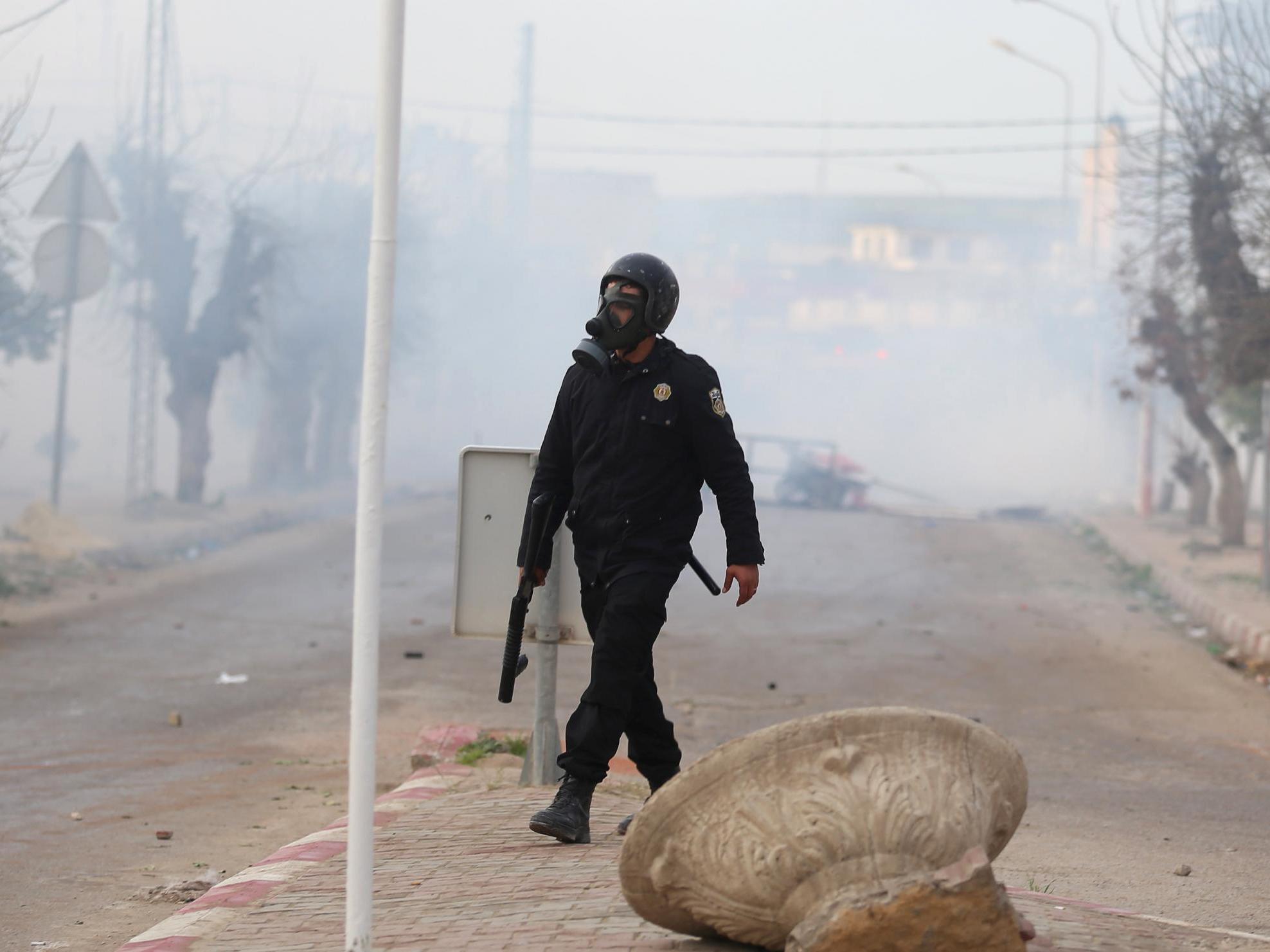Tunisia’s arbitrary travel and security restrictions have gone too far – I should know, I was just detained
The increasing dominance of Tunisia’s security sector isn’t just about delays at the airport. It’s imperilling what drove many young people to the streets in 2011 – throwing into doubt the nature of the state entirely

We live in a world of thumbnail bios, with each country afforded a few lines by which we define it. Tunisia, for instance, is the success of the Arab Spring, a brave country emerging from the dark shadow of a corrupt autocracy into the bright lights of a democratic future.
That Tunisia has made some dramatic strides towards western notions of liberalism is beyond dispute. In August of this year, the country’s 91-year-old president proposed a law equalising inheritance across the genders, a move previously considered unthinkable to more conservative Muslim minds. In October, the country passed a law criminalising racial discrimination, another first within a region where race relations do not always feature prominently upon anyone’s agenda.
However, throughout Tunisia’s democratic transition has been the slow and steady return of the country’s security services, once the attack dogs of the old regime, and now gradually returning to a central role within public life.
There are endless examples of this, from the lack of cooperation, some would say obstruction, faced by the country’s Truth and Reconciliation Commission, to the reports of torture that still make their way into the public sphere.
Fuelled by a seemingly endless state of emergency, imposed after an attack on a police bus some three years ago, plus the intractable rise in prominence of the security service’s unions, Tunisia is approaching a situation where the power of the police is exceeding that of the politicians elected to govern them.
A case in point, and – for me – one especially close to home, would be those of travel restrictions. The power to restrict international travel to and from Tunisia was introduced by the Ministry of Interior in 2013.
The notion at the time was to stem the flow of aspirant jihadists leaving the country for the battlefields of Syria and Iraq. As aims go, it’s not a bad one. However, the arbitrary nature of the measure, taken solely at the police’s discretion without referring to a Court or even necessarily informing the subject, has been the cause of some significant concern, not least from me. Odds are, I’m the subject of one.
I write this in Malta. I arrived around two hours ago after being detained by the police in Tunis trying to board my flight. In a few days I will return when I fully expect to be detained again. There’s nothing new in this. It’s been happening every time I enter or leave the country since 2016.
The reason, as far as I can tell, is one of timing, bad timing. I had a commission to write a story from the fractious border town of Ben Guerdane. Full disclosure, my paperwork wasn’t fully up to date, but this would not normally have been too great a problem. However, on the day of my arrival in the area, a professor at Sfax University was assassinated by what many assumed to be Mossad agents posing as journalists. Needless to say, it was a bad day to be a reporter on the border with out-dated paperwork.
I was held for a morning, but eventually sent back to Tunis with a mammoth-sized flea in my ear. The first indication that my problems were not over came around a week later, when I was detained leaving Tunis for Europe. This happened again upon my return to Tunisia and has been happening without fail ever since. I have been reassured by Tunisia’s Ministry of Foreign Affairs that I am not subject to any security measures and airport officials appear to have no idea why they have been instructed to detain me, only that they have to call the Ministry of the Interior for further instructions.
All of this chimes with Amnesty’s characterisation of the country’s S17 travel restrictions, which they reported the country’s Administrative Court as having declared illegal on 5 November.

Under normal circumstances, things would have ended there and the restrictions lifted. However, responding to court’s statement, interior minister Hichem Fourati told a Parliamentary Commission that the court had essentially got it wrong and that the ministry of interior had no immediate plans to amend its behaviour or seek fresh judicial approval for the measures it continues to impose.
This may seem like a small point, but there’s a larger issue at stake here. The power of Tunisia’s police continues to grow. Rather than act as a check, politicians of a certain stripe are, if anything, encouraging it.
Following an unclaimed suicide attack in central Tunis earlier this month, politicians again called for the introduction of a controversial bill, "Repression of Attacks against the Armed Forces," a proposal slammed by Human Rights Watch in July as essentially transforming the country’s security services into “super citizens,” free from criticism, or questions over their arbitrary behaviour, including even calling for justice following the unjustified use of lethal force.
The returning primacy of Tunisia’s security sector isn’t just about delays at the airport. It’s imperilling what drove many young people to the streets in 2011 and its’ throwing into doubt the nature of the state that many talented and motivated Tunisians are trying to construct.
Moreover, for those likely subject to these measures, it will mean a further protracted wait at Tunis airport while, in my case, I wonder if this is the day I am not allowed to enter the country that has become my home.
*Name has been changed to protect the identity of the writer
Join our commenting forum
Join thought-provoking conversations, follow other Independent readers and see their replies
Comments
Bookmark popover
Removed from bookmarks